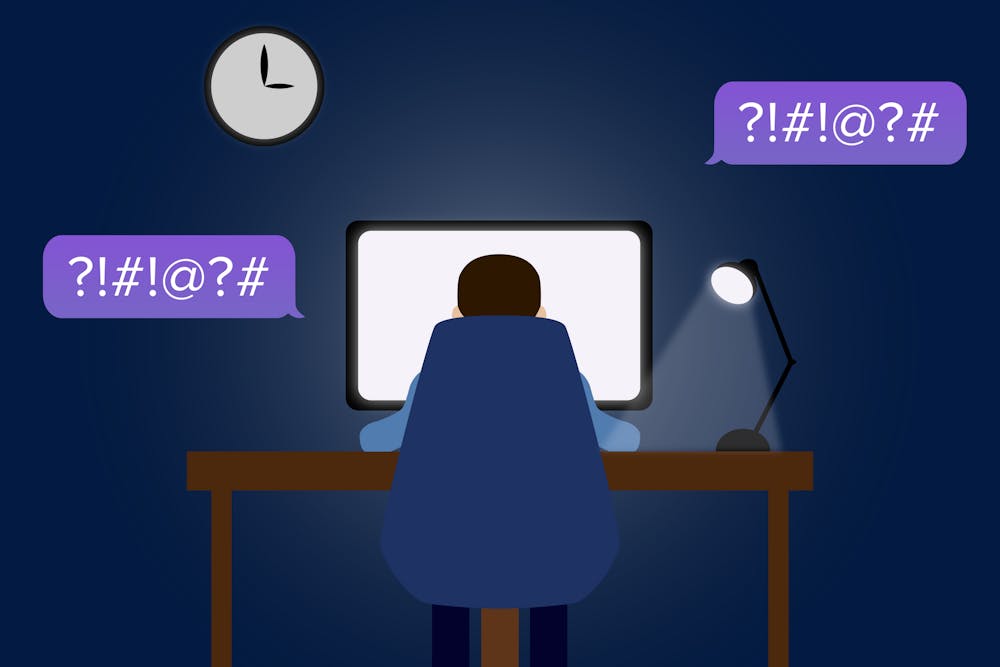I had just dropped my little sister off at basketball practice when the first message on Instagram came through.
“Are you that bitch who killed that little girl?”
An odd message to receive on a random Wednesday, sure, but probably just some internet troll trying to get a rise out of me. I hit delete without a second thought.
But then, things started to escalate.
Over the next week, I received hundreds of follower requests and increasingly violent direct messages (DMs).
I was physically threatened, called slurs and told to kill myself. I was informed I was worthless and a murderer, and that the world would be better off without me in it. One person even said they were trying to find where I lived.
It was terrifying. It’s still terrifying. But at the moment, I was mostly confused. I could not understand what was happening because I didn’t know who any of these people were or why they were targeting me.
That is, until I checked TikTok.
Now, I didn’t (and still don’t) have a TikTok account, but after one of the DMs mentioned seeing my face there, I knew I had to investigate. Commandeering my younger brother’s account, I searched for information using the few clues I had.
Here’s what I found: A middle school student died by suicide two summers ago. The mother of this student blamed the suicide on four minors, saying they cyberbullied her child into the resulting action. Because of their status as minors, they have legal protections that adults do not, including the protection of their identities. Regardless of this fact, internet vigilantes “doxxed” them, exposing their names, photos, addresses and social media profiles, inviting harassment.
But those internet sleuths did a shitty job.
I know this because out of the four victims of doxxing, only one of them didn’t include their social media handles, and it just so happened to be the one who had a VERY similar name to my own.
Enjoy what you're reading?
Signup for our newsletter
It didn't matter that they lived several states away, were almost seven years younger and didn’t even look like me. Because some person on the internet imperfectly doxxed a child, I was receiving threats.
Worse, these people were finding my actual pages and leaving comments, making it seem like I was the person they were trying to dox. I remember desperately calling my old high school teachers because internet strangers were leaving comments under actual videos of me posted on school channels.
The whole situation taught me two important lessons: media literacy skills are getting worse, and some people are way too confident hiding behind a screen.
It is obvious I was not the person they were looking for. I was too old, from a different state and shared almost no resemblance to the girl. It would have taken five minutes to scan the page, read a news article about the details of the case or even check the victim’s mother’s social media accounts to see that I didn’t deserve any of it.
The four minors accused of bullying were cleared by the police, the school and the courts in relation to the suicide. Did they actually do it? It’s not up to me to decide. But legally, they are not accountable.
This brings me to the second point: vigilante online justice.
It is insane that in light of an alleged cyberbullying case, strangers decided to do the exact same thing to another person. These people, thinking they were defending a kid who they believed faced cyberbullying, ended up doing it in the process.
I will never forget the hate and threats that were spewed my way. I will never forget the way I feared for my future and the safety of me and my loved ones.
Nobody deserves to feel that way online – especially innocent people and children.
The internet used to be a safe space for me. I had private accounts, posted only my most wholesome photos and was very careful of my digital footprint.
That didn’t save me from being accused of a crime I didn’t commit. It didn’t save me from hate or fear. And it won’t save you, although I hope you never face the wrath of the internet.
After the incident, I scrubbed myself from the internet. I changed my handles, deleted my bios and made sure any past videos of me have locked comments. But I can’t change the past, and I can never fully clear my name. Because while I didn’t do anything and had never heard of the case before that fateful summer day, I know some people just won’t believe it.
Now, things have mostly died down. I still do random checks, making sure I’m not being dragged into the conversation again, but I’m cautiously optimistic.
I’m also just cautious of the internet, of anger and of cancel culture. We don’t always blame the right people, and sometimes, I need to remind myself of that fact, too.
Stay safe out there. The internet doesn’t have to be your enemy, but it’s also not always your friend.
Parker Green is a first year English literature and strategic communication major. She’s also a tour guide and member of several student organizations, including The Miami Student. When Parker isn’t doing academic or extracurricular work, you can usually find her reading or having a movie night with friends.




